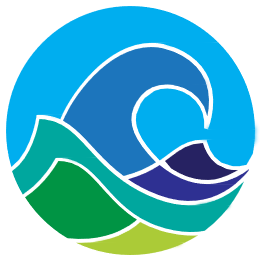CROSS-THEME ACTIVITY

The United Nations has declared 2021-2030 as the UN Decade of Ocean Science for Sustainable Development.
The objective is to motivate international efforts aimed at improving ocean health by providing the science necessary for sustainable development of the oceans - to underpin ‘The ocean we need for the future we want’.
A UNIQUE COLLABORATION, spearheaded by the Centre for Marine Socioecology, of over 100 researchers from the University of Tasmania (UTAS), the Commonwealth Scientific and Industrial Research Organisation (CSIRO) and other institutions. Within UTAS, members come from the Colleges of Arts, Law and Education, Health and Medicine, and Sciences & Engineering (specifically the Institute for Marine and Antarctic Studies and the School of Technology, Environments and Design). The collaboration includes psychologists, public health and education experts, philosophers, ecologists, oceanographers, climate modelers, economists, social scientists, engineers, information and communications technology researchers, and social scientists, as well as governance, law and policy experts.
Approximately 40% of the group are PhD students and Early Career Researchers, providing an excellent opportunity to train and mentor the next generation of interdisciplinary researchers.
In addition to the Australian-based researchers we are pleased to have involvement and collaboration with Indigenous representatives from around the world to define and lead the drafting of their own ‘key challenge’ for the oceans, as well as contribute much needed perspectives to the other challenges. Read more about the Traditional and Indigenous Working Group participants here.
Visit the Future Seas 2030 website here.

We take a broad and interdisciplinary look at what processes and approaches have been and could be effective for leveraging change. Uniquely, in addition to management, policy and governance actions, our collaboration is exploring what approaches have been used in Psychology, Information and Communications Technology (ICT) and Public Health for human behavior change across all levels of intervention.
The field of psychology has generated a body of evidence about the design and efficacy of behaviour change interventions for individuals, organisations and communities. This research has mainly been applied to health literacy and health behaviours, however, the principles and mechanisms inform models of change that can be applied to other real-world challenges, such as marine environmental issues. The field of ICT has informed measurement of human behaviour, cognition and environmental psychology perspectives that underpins technology enabled behaviour change. Psychology is also moving increasingly in synergy with the fields of computing and technology to maximise the reach, innovation and sustainability of change interventions, whether they be programs for individuals or whole communities.
The scenarios include what the future would look like if current trends continue, and also what our future could look like if we more effectively used the data and knowledge currently available to us, and pushed as far as possible towards achieving the Sustainable Development Goals (SDG’s). We then use ‘back-casting’ (i.e. working backwards from the desirable future) to generate a tangible plan for possible actions to undertake at local, regional and global scales, if society chose to work towards the future more in line with the UN SDG’s.